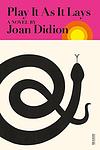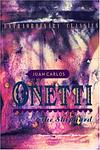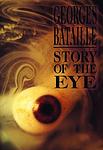The Greatest "Psychological, Existentialist, Fiction" Books Since 1950
Click to learn how this list is calculated.
This list represents a comprehensive and trusted collection of the greatest books. Developed through a specialized algorithm, it brings together 305 'best of' book lists to form a definitive guide to the world's most acclaimed books. For those interested in how these books are chosen, additional details can be found on the rankings page.
Genres
The Psychological genre of books typically explores the inner workings of the human mind and emotions, often delving into complex and sometimes disturbing psychological states. These books may focus on mental illness, trauma, relationships, or personal growth, and often challenge readers to confront their own beliefs and perceptions. Psychological books may be suspenseful, thought-provoking, and emotionally intense, offering readers a deep and often unsettling glimpse into the human psyche.
Existentialist literature is a genre that explores the meaning and purpose of human existence, often through the lens of individual experience and subjective perception. These books often delve into themes of freedom, choice, and responsibility, and may challenge traditional notions of morality and societal norms. Existentialist literature can be introspective and philosophical, and may offer readers a unique perspective on the human condition and the search for meaning in a complex and often chaotic world.
Countries
Date Range
Reading Statistics
Click the button below to see how many of these books you've read!
Download
If you're interested in downloading this list as a CSV file for use in a spreadsheet application, you can easily do so by clicking the button below. Please note that to ensure a manageable file size and faster download, the CSV will include details for only the first 500 books.
Download-
1. The Unbearable Lightness of Being by Milan Kundera
Set against the backdrop of the Prague Spring period of Czechoslovak history, the novel explores the philosophical concept of Nietzsche's eternal return through the intertwined lives of four characters: a womanizing surgeon, his intellectual wife, his naïve mistress, and her stoic lover. The narrative delves into their personal struggles with lightness and heaviness, freedom and fate, love and betrayal, and the complexities of human relationships, all while offering a profound meditation on the nature of existence and the paradoxes of life.
The 114th Greatest Book of All Time -
2. Molloy by Samuel Beckett
"Molloy" is a complex and enigmatic novel that follows the journey of its eponymous character, an elderly, disabled vagabond, who is tasked with finding and killing a certain person. The narrative is split into two parts: the first is told from Molloy's perspective as he navigates his way through a strange and often hostile world, while the second follows a detective named Moran who is assigned to find Molloy. The novel is renowned for its challenging narrative structure, its bleak and absurdist humor, and its profound exploration of themes such as identity, existence, and the human condition.
The 244th Greatest Book of All Time -
3. Play It As It Lays by Joan Didion
The novel centers around a woman named Maria Wyeth, a former model and actress, who is drifting through life in the 1960s Hollywood scene. As she struggles with a failing marriage, a difficult relationship with her daughter, and a career that's spiraling downwards, she grapples with existential despair. Told in a series of fragmented narratives, the story reveals Maria's mental breakdown, her self-destructive behavior, and her desperate attempts to find meaning in a seemingly meaningless world.
The 419th Greatest Book of All Time -
4. The Fall by Albert Camus
The novel is narrated by a successful Parisian lawyer who has moved to Amsterdam after a crisis of conscience. He confesses his past misdeeds and moral failings to a stranger in a bar, revealing his growing self-loathing and disillusionment with the hypocrisy and shallowness of his former life. His confessions are a reflection on guilt, innocence, and the nature of human existence. The protagonist's fall from grace serves as a critique of modern society's moral failings and the individual's struggle with guilt and redemption.
The 669th Greatest Book of All Time -
5. I'm Not Stiller by Max Frisch
The book is a profound exploration of identity and the human condition, revolving around a man who is arrested upon his return to his home country, Switzerland, after spending time in America. Although he insists he is not the man, Stiller, that everyone believes him to be, his protests are ignored. The story unfolds as he writes in his prison cell, reflecting on his past life and relationships, and grappling with the question of who he truly is. It's a thought-provoking narrative that challenges conventional notions of selfhood and personal identity.
The 686th Greatest Book of All Time -
6. Correction by Thomas Bernhard
"Correction" is a complex narrative revolving around the life of a man named Roithamer, a genius obsessed with constructing an architectural masterpiece, the Cone, in the center of the Kobernausser forest. The story is told through the perspective of his friend who is reading Roithamer's notes after his suicide. The novel explores themes of obsession, isolation, and the pursuit of perfection, while also delving into the protagonist's troubled relationships with his family and society.
The 1032nd Greatest Book of All Time -
7. The Passion According to G.H. by Clarice Lispector
"The Passion According to G.H." is a philosophical novel that delves into the existential crisis of a wealthy Brazilian woman who, after killing a cockroach in her maid's room, experiences a profound metaphysical crisis. The narrative unfolds as a stream of consciousness that explores themes of identity, existence, and the nature of reality. The protagonist's journey forces her to confront her own humanity, the concept of nothingness, and the chaotic, interconnected nature of life. It's a profound and introspective exploration of the human condition and the meaning of existence.
The 1062nd Greatest Book of All Time -
8. The Shipyard by Juan Carlos Onetti
"The Shipyard" is a novel set in a decaying Uruguayan port town, where the protagonist, a middle-aged man recently released from jail and suffering from tuberculosis, decides to take on the impossible task of reviving a defunct shipyard. The book explores themes of existentialism, disillusionment, and the struggle for meaning in a seemingly absurd world. Despite the bleak surroundings and circumstances, the protagonist remains hopeful and committed to his ambitions, providing a poignant commentary on the human spirit's resilience.
The 1320th Greatest Book of All Time -
9. The Ravishing of Lol Stein by Marguerite Duras
The Ravishing of Lol Stein is a novel that explores the life of the eponymous character, who is traumatized by her fiancé's betrayal at a ball. This event leads her into a mental breakdown, after which she returns to her hometown and marries an older man. However, her life takes a turn when she becomes obsessed with a young couple, leading her to question her own sanity and reality. The book delves into themes of love, obsession, and the thin line between sanity and madness.
The 1502nd Greatest Book of All Time -
10. Death and the Dervish by Meša Selimović
In "Death and the Dervish", the protagonist is a dervish in the 18th century Ottoman Empire, who embarks on a mission to find his imprisoned brother. As he navigates through the complex and corrupt bureaucracy, he grapples with questions of morality, justice, and the nature of power. The story explores themes of existentialism and the struggle for meaning in a world marked by suffering and injustice.
The 1631st Greatest Book of All Time -
11. Concrete by Thomas Bernhard
The book is a darkly introspective narrative that delves into the mind of a reclusive, obsessive intellectual who is struggling to complete his scholarly work on the composer Mendelssohn. As he grapples with his own ailments and the perceived mediocrity of his surroundings, the protagonist's stream-of-consciousness monologue reveals his deep-seated anxieties, self-loathing, and profound isolation. The narrative is a relentless examination of the protagonist's psyche, showcasing his critical view of society and his own personal relationships, which are fraught with tension and dysfunction. Through this, the novel explores themes of artistic creation, intellectual elitism, and the suffocating nature of expectations and familial obligations.
The 1743rd Greatest Book of All Time -
12. Woodcutters by Thomas Bernhard
Woodcutters is a darkly humorous critique of Vienna's artistic elite. The story takes place over the course of a single evening, as the narrator attends a dinner party in honor of a recently successful actor. As the evening progresses, he reflects on the pretentiousness and hypocrisy of the guests, the mediocrity of their artistic achievements, and the tragic suicide of his former lover. The novel is a scathing indictment of the vanity and self-delusion of the artistic community.
The 1750th Greatest Book of All Time -
13. The Box Man by Kobo Abé
"The Box Man" is a surreal narrative about a man who chooses to live as a homeless individual, inside a box, in Tokyo. The protagonist, a former doctor, narrates his experiences and observations from within the box, and the narrative often blurs the line between reality and hallucination. The book is a philosophical exploration of identity, anonymity, and the nature of existence, challenging the reader's perception of what it means to be an individual in society.
The 1940th Greatest Book of All Time -
14. Blue of Noon by Georges Bataille
"Blue of Noon" is a provocative novel set in 1930s Europe during the rise of fascism. The story follows the life of an Englishman living in Paris, who is embroiled in a self-destructive cycle of sexual escapades and political extremism. His journey takes him through various European cities, where he engages in debauchery and encounters the political turmoil of the time. The book explores themes of existentialism, nihilism, and the human condition, offering a dark and complex portrayal of a man's struggle with his inner demons and the chaotic world around him.
The 1991st Greatest Book of All Time -
15. The Clay Machine-gun by Victor Pelevin
"The Clay Machine-gun" is a surreal and complex novel that explores the nature of reality and illusion. The story is set in post-Soviet Russia and follows a protagonist who has multiple identities, including a poet in 19th-century Russia, a 20th-century psychiatric patient, and a 21st-century advertising executive. The narrative moves between these identities and realities, blurring the lines between them and creating a layered and philosophical exploration of Russian society, identity, and the human psyche.
The 2275th Greatest Book of All Time -
16. The Guiltless by Hermann Broch
"The Guiltless" is a novel that explores the disintegration of values and the rise of fascism in Germany between the two World Wars. It follows the lives of several characters, including a businessman, a musician, and a murderer, whose stories intertwine to paint a picture of a society in moral and social decline. The narrative delves into their personal struggles and moral dilemmas, reflecting the broader societal issues of the time and offering a critique of the political climate that allowed for the rise of totalitarian regimes.
The 2452nd Greatest Book of All Time -
17. The Glass Bees by Ernst Jünger
"The Glass Bees" is a novel set in a future dystopian society, where technology has advanced to the point where robotic bees are being used for honey production. The story follows a former cavalryman who, desperate for employment, accepts a job from a powerful technocrat to test out these mechanical bees. As the protagonist gets more involved in the technocrat's world, he begins to question the morality and implications of such advancements, leading to a deep exploration of the intersection between technology and nature, and the potential consequences of unchecked technological progress.
The 2452nd Greatest Book of All Time -
18. The Afternoon of Monsieur Andesmas by Marguerite Duras
"The Afternoon of Monsieur Andesmas" is a poignant exploration of memory, waiting, and the passage of time set in a small Mediterranean village. The narrative focuses on Monsieur Andesmas as he waits on a hillside for a contractor to discuss building a terrace for his daughter. As he waits, various interactions with the local people and his internal reflections reveal the complexities of his past relationships and the deep undercurrents of emotion tied to his family and his life choices. The novel delves into themes of guilt, regret, and the haunting nature of past decisions, all encapsulated in the quiet, tension-filled atmosphere of a single afternoon.
The 2828th Greatest Book of All Time -
19. Rituals by Cees Nooteboom
"Rituals" is a philosophical novel that explores the lives of three men, each dealing with existential crises in post-World War II Netherlands. The narrative delves into their individual searches for meaning and purpose, their struggles with societal norms, and their attempts to establish personal rituals as a way to create order in a seemingly chaotic world. The book is a profound meditation on the human condition, examining themes of time, death, and the nature of reality.
The 2887th Greatest Book of All Time -
20. Jerome by Jean-Pierre Martinet
"Jerome" is a dark and unsettling novella that delves into the life of its eponymous protagonist, a reclusive, grotesque, and morbidly obese librarian who lives in a decrepit apartment. His existence is one of grim routine and perverse fantasies, as he harbors an unhealthy obsession with the young daughter of his landlord. The narrative explores the depths of Jerome's alienation and psychological torment, painting a bleak portrait of a man consumed by his own depravity and the suffocating confines of his solitary world. The book is a stark examination of loneliness, despair, and the human condition, rendered with a visceral intensity that leaves a lasting impression.
The 5494th Greatest Book of All Time -
21. The Loser by Thomas Bernhard
"The Loser" is a philosophical novel that revolves around the complex relationship between three friends who are all piano virtuosos. The narrative is driven by the protagonist's obsession with his friend's suicide, which he believes was triggered by the realization that they could never surpass the genius of their third friend. The book delves into the protagonist's psyche as he grapples with themes of talent, ambition, failure, and the destructive power of comparison.
The 5733rd Greatest Book of All Time -
22. The Woman in the Dunes by Kobo Abe
This novel tells the story of a schoolteacher and amateur entomologist who travels to a remote seaside village to collect insects. He is tricked into staying the night in a house at the bottom of a sand pit with a mysterious woman, who spends her days shoveling back the ever-encroaching sand. As the days pass, the man realizes he has been trapped and is forced to help the woman with her endless task, leading to a strange and consuming relationship filled with existential dread and fascination.
The 6755th Greatest Book of All Time
Reading Statistics
Click the button below to see how many of these books you've read!
Download
If you're interested in downloading this list as a CSV file for use in a spreadsheet application, you can easily do so by clicking the button below. Please note that to ensure a manageable file size and faster download, the CSV will include details for only the first 500 books.
Download



















